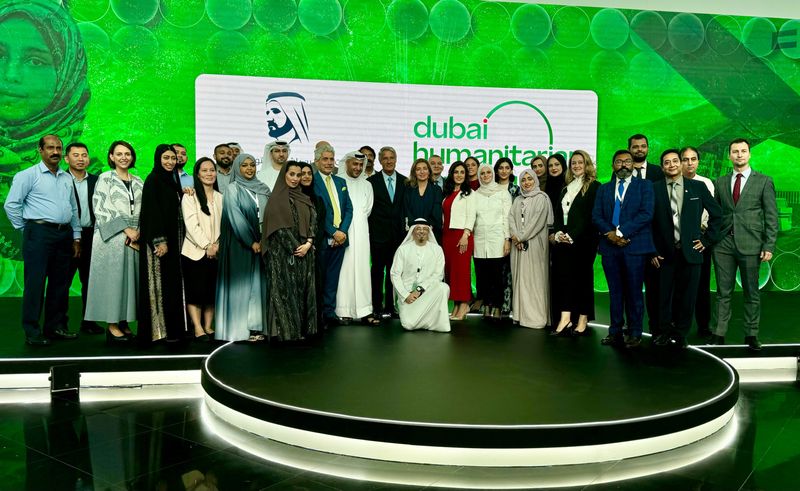UAE: New Centre to Prepare Local Communities for Emergency Response to Open in Dubai

A new centre aimed at preparing local communities for emergency response by focusing on sustainable humanitarian action will open in Dubai within days.
The Knowledge and Development Centre will open in the premises of the world’s largest humanitarian hub International Humanitarian City (IHC), which was renamed as ‘Dubai Humanitarian’ on Monday.

The centre was announced as part of the new projects under the rebranded hub that aims to boost global aid with partners, particularly the United Nations World Food Programme (WFP).
Established within Dubai Humanitarian’s warehouse compound, the new facility signifies a commitment to knowledge sharing and capacity building in the humanitarian sector, it was announced during the ‘Global Humanitarian Meeting’ attended by more than 250 stakeholders and representatives of partner humanitarian hubs.
This space will serve as a hub for various activities aimed at enhancing the skills and expertise of humanitarian workers, ultimately improving their effectiveness in delivering aid.
Purpose and goals
Revealing more details to Gulf News, Giuseppe Saba, CEO of Dubai Humanitarian, said the centre was ready for its opening next Friday.
“It will be a Centre of Excellence focusing on more sustainable humanitarian action,” he said.
According to him, it will serve as a hub for academia, private sector, and humanitarian communities to exchange knowledge and develop courses on logistics and humanitarian aid and prepare the local communities for emergency response.
“It will be an innovation centre. Let me say that we are creating the best of the conditions in order to set up a neutral zone where all parties can discuss together and can bring innovation together…and of course, share information, knowledge and best practices, and prepare the future humanitarian action.”
Operations and courses
Saba said the facility will directly get into operation without any formal opening ceremony. However, it will organise a conference in November to explore how to apply existing innovation to the humanitarian field.
“That’s going to be the topic and we are going to sit together with the academia, the private sector, as well as with the humanitarian community.”
The centre will then offer dedicated courses focused on health logistics and humanitarian logistics. “Those are going to be the first courses… It is because we have experienced an exponential growth of repositioning the health stocks that are needed during an emergency,” said Saba.
The courses aim to attract the youth into humanitarian activities with expert knowledge in the subject.
Recognising rain volunteers
The UAE’s response to last week’s record rainfall highlighted the role of volunteerism in emergency situations. While the participants at the Global Humanitarian Meeting took a moment to appreciate and applaud the efforts of Dubai authorities in getting the city back on its feet in record time, Saba also appreciated the role of volunteers in relief efforts, despite facing challenges. He suggested that they should be recognised for their selfless acts.
While the new courses would motivate more youths from the UAE into humanitarian activities, a similar component in the WFP’s future projects would also do the same.
Dubai fund for WFP
Alex Marianelli, director, Global Supply Chain Support Centre of WFP, said the UN agency aims to scale up its global programme and supply chain operations with direct support from the Dubai government.
“It’s about logistics. It’s about partnership, and it’s also about recruiting and engaging young Emiratis and giving them exposure to humanitarian aid.”
He revealed that the Dubai government had last year announced a three-year funding for WFP.
“It’s three years of funding with $7.5million per year. It’s really a statement from the Government of Dubai and from Dubai Humanitarian that it is a long term engagement and its funding for us to enable the growth of that structure and to use the UAE in a far more meaningful, potent way over many years.”
He said 70 per cent of WFP’s emergency work already comes from Dubai and the new funding will mean “a more efficient response, which means more and faster aid.”
2 decades of growth
Saba also highlighted the support from the Dubai Government for the IHC. “We could not have done all that we have done without the support of the Dubai government in the past 20 years. I am extremely confident that we will continue to get that support.”
Over the past 20 years, he said, the humanitarian hub dispatched aid to 135 countries. The latest figures show that the hub sent out 1200 shipments carrying humanitarian aid worth over $40 million per year.




